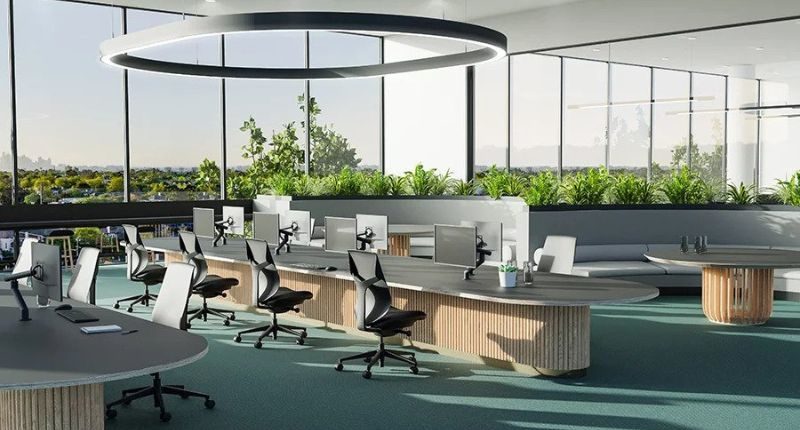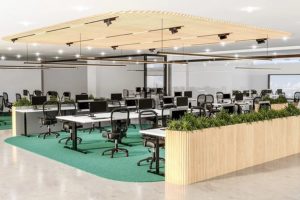
- Flexible workspace provider Waterman to build two new centres in Richmond and Bundoora
- Centres aim to meet increasing demand for co-working spaces, as workers seek convenience and networking opportunities
- Two new centres to join four existing Melbourne spaces, with plans to add a further 10 over the next two years
Flexible office space provider Waterman has announced plans to open two new co-working centres in Richmond and Bundoora.
The expansion plans aim to meet newfound demand for premium co-working spaces, which has heightened since the pandemic.
The two new centres are scheduled to open by the end of the year, joining Waterman’s existing centres in Chadstone, Narre Warren, Scoresby and Eastland Ringwood.
Centres to meet heightened demand for co-working spaces
Waterman founder and CEO Neville Waterman said the message from Melbourne’s workforce was clear, prompting the company to broaden their reach.
“They want the flexibility to work near home, not necessarily at home all the time,” he said.
According to Mr Waterman, nearly all of the company’s customers live within a 15 minute drive of their suburban centres, an important factor in the location of new centres.
“We’ve seen a phenomenal rebound in revenue since the pandemic and an equally rapid growth in enquiries, with new businesses and industries embracing flexible workspace as more employees seek to lose the commute,” he added.

According to Peter Tainsh, Project Director for Waterman Business Centres, Waterman’s co-working spaces are designed with the desires of their customers in mind.
“We’ve listened to our members who have expressed their desire for well maintained, professional workspaces offering convenience and good amenity, with the added opportunity of networking with like-minded businesses.”
Peter Tainsh, Waterman Business Centre
The new co-working spaces are to be built by Otto Construction Group in two strategically chosen, key suburban locations within Melbourne.
The Richmond office will be located at 678 Victoria Street, within the bustling Victoria Gardens shopping precinct.
Designed by architectural firm Clarke Hopkins Clarke, the centre will comprise of 34 workstations, 22 private offices, 3 meeting rooms, a private reception, and a kitchen.
Mr Tainsh described Richmond as of one Melbourne’s most vibrant and desirable work and lifestyle locations.
“Where else do you find somewhere to work so close to the city, but not in the city, with access to plenty of parking, transport, food and shopping, and the natural surrounds of the Yarra River,” he said.

The Bundoora centre will be located at the corner of Plenty Road and Janefield Drive, as part of the Uni Hill Town Centre and in proximity to the RMIT University campus.
The space will be designed by the architects at Studio Tate, and will boast 23 workstations, 22 private offices, 4 meeting rooms, a private reception, and a kitchen.
“The same can be said for the popular Uni Hill Town Centre in Bundoora – a thriving shopping and service hub for the rapidly growing Whittlesea community,” Mr Tainsh added.
“Providing locals, the opportunity to work locally with flexibility will undoubtedly be a game changer for many,” concluded Mr Tainsh.
Waterman plans to continue its rapid expansion in the near future, aiming to create at least 10 new centres in the next two years.







